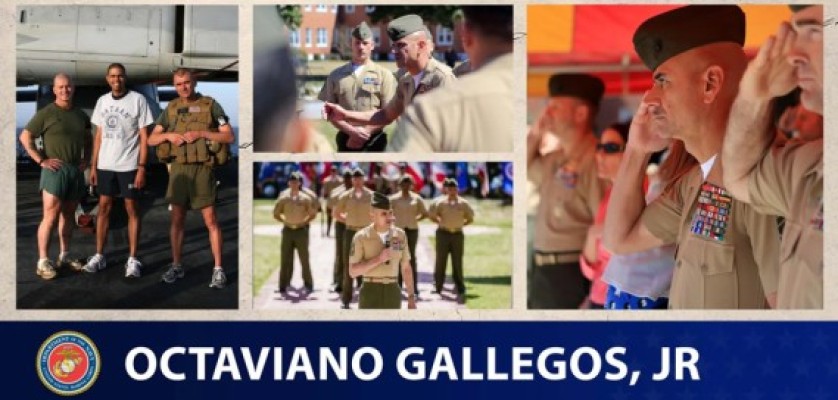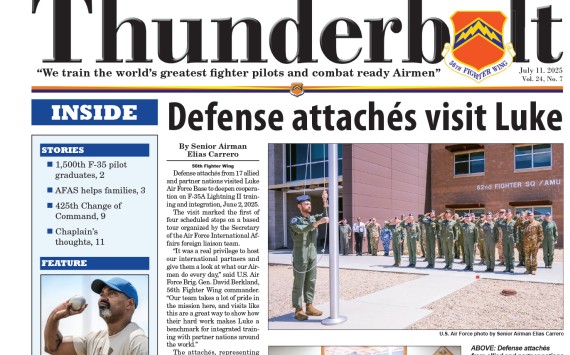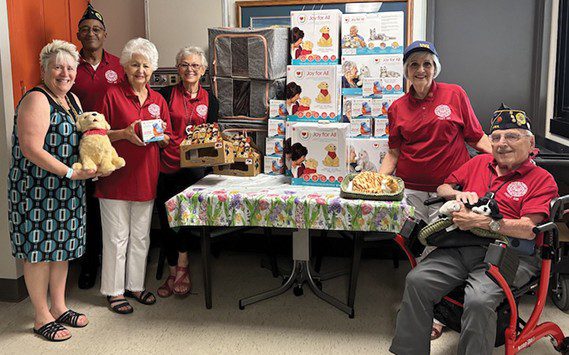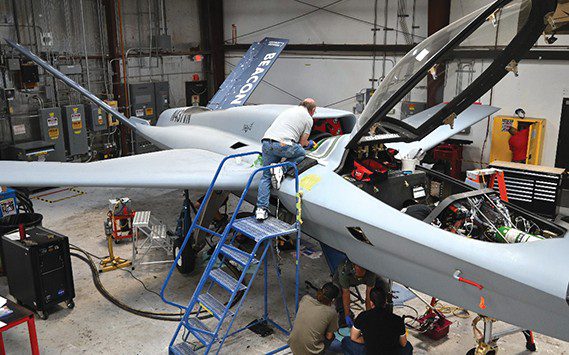Octaviano Gallegos Jr. was born in May 1967 to Mexican immigrant parents. One of six children, Gallegos grew up working in cotton fields with his family assisting his parents from the time he was in seventh grade until his last year of high school.
He made the decision to join the Marines partly because of his hope of giving back to his country, stating it had naturalized his parents and given his family a better life. His decision to specifically join the Marine Corps resulted from his admiration of Marine Sgt. William Gallegos, one of the more than 50 American hostages trapped in Iran during the hostage crisis of 1979 to 1981.
Gallegos began service in the summer of 1985. Though he describes himself as having been “scared” during his bootcamp experience, he reported to Infantry Training School upon graduation and was first stationed at Marine Barracks 8th and I in Washington, D.C., as part of the Marine Corps Silent Drill Platoon. In addition to serving in various locations within the U.S. — including Camp Lejeune in North Carolina and Camp Pendleton in California — Gallegos served in 28 different countries throughout his career, including Korea, Japan, Bahrain, Kuwait, Saudi Arabia, Philippines and more.
Gallegos served in three combat operations: Desert Shield and Desert Storm in the Gulf, as well as multiple stages of Operation Iraqi Freedom. In 2008, he joined the 22nd Marine Expeditionary Unit (MEU), performing this role for the Marine Medium Tiltrotor Squadron 263 before leading the 24th MEU as its 18th sergeant major in September 2011. As sergeant major of the unit, he led its deployment in 2012, during which it sailed around the areas of responsibility of the fifth and sixth fleets of the US Navy. Gallegos continued to lead strictly afterwards, preventing a post-deployment “power down” common among MEUs.
After getting married and becoming a father, Gallegos retired in 2014, ending a service career spanning 29 years. In addition to crediting his time in service for affecting his life “in a lot of ways,” including through teaching him to never “take life for granted,” he also credits the Corps for him meeting his wife, who was the sister of a recruiter.
We honor his service.












